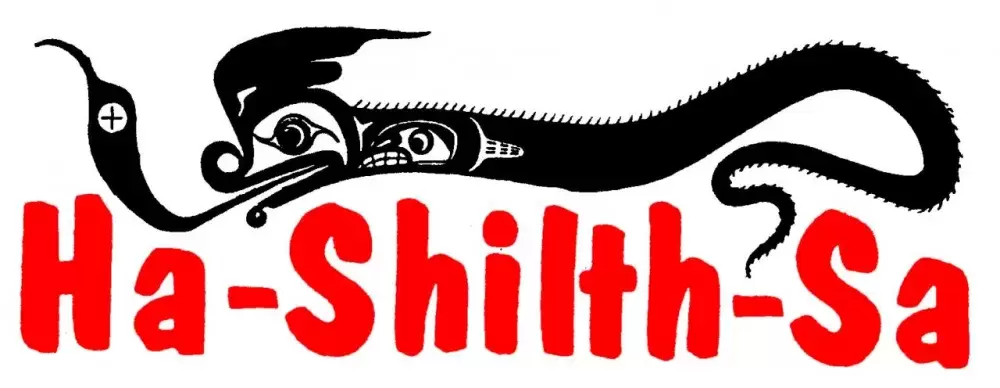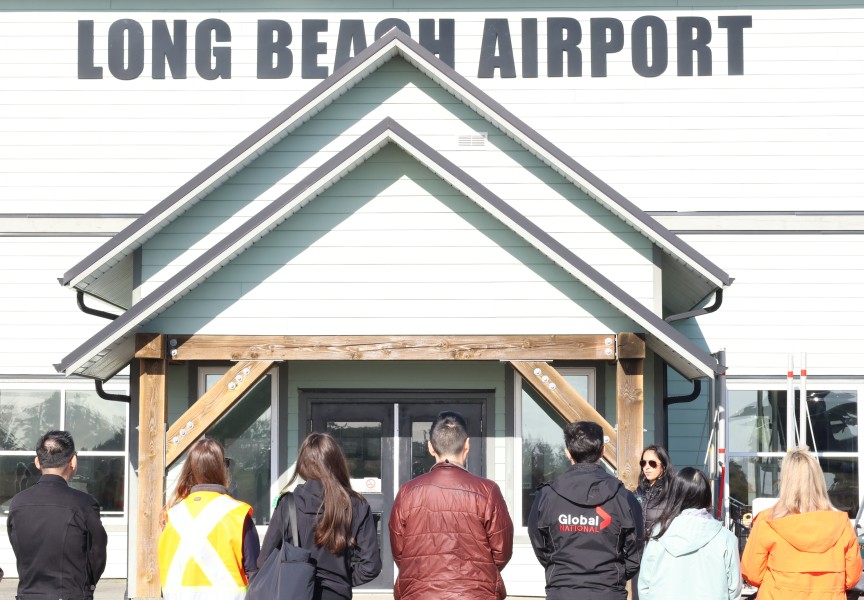Fisheries and Oceans Canada (DFO) has shut down all commercial harvesting of herring, herring roe, and spawn-on-kelp because of projected low returns of West Coast Vancouver Island herring.
In order for a commercial herring fishery to occur, DFO claims there needs to be at least 20,723 tons of herring projected to return to the west coast. DFO estimates 20,283 tons will be returning this year, 440 tons short of their cutoff amount.
As a result, DFO has advised the four Nuu-chah-nulth commercial Spawn-On-Kelp (SOK) license holders (Ka:’yu;’k’t’h’/Che:ktles7et’h’, Ehattesaht, Ahousaht, and Toquaht) they will not be allowed to operate in 2006. However, they will allow Nuu-chah-nulth food and ceremonial fisheries for herring and herring spawn (kwaqmis, siihmuu) to proceed as usual.
Uu-a-thluk Council of Ha’wiih recommended to DFO that there is enough herring for all Nuu-chah-nulth SOK and food and ceremonial fisheries in 2006.
At an October 5th Integrated Harvest Planning Committee (IHPC) meeting, First Nations, DFO, SOK license holders, seiners, gillnetters, and processors generally agreed there was enough herring to allow for a WCVI SOK fishery, but DFO senior staff allowed the rare consensus to fall apart.
“Previously DFO has allowed commercial SOK fisheries when the abundance of herring has been at levels similar to this year,” said NTC / Uu-a-thluk Fisheries Manager Dr. Don Hall. “Uu-a-thluk staff wrote to DFO in late November that the many benefits associated with allowing the Nuu-chah-nulth SOK fisheries to operate far outweigh the immeasurable benefit of not allowing the harvest of 140 to 400 tons of herring that the SOK operators might harvest,” he said.
Hall, who specialized in herring population dynamics and modeling for his Master of Science degree, said “it is extremely doubtful that harvest rates of 0.7-2.0% [amount of herring required for 4 Nuu-chah-nulth SOK commercial fisheries] would measurably impede the recovery of WCVI herring”.
But Steven Wright, DFO’s Acting Director Resource Management Program Delivery disagrees. “Yes, we allowed an SOK fishery in QCI (Haida Gwaii) but the stocks didn’t recover there, so given our experience we’ve chosen to be more precautionary on the west coast of Vancouver Island,” he said. “We want to balance conservation and socio-economic impacts, and had considerable discussions (within DFO) before making this decision, which was subject to scientific terms, but there was also the recognition that the price for SOK has dropped dramatically over the past few years,” he said.
“This should be an economic decision for First Nations, not a decision imposed by an overly strict interpretation of biological information,” the Uu-a-thluk staff wrote in a letter to Paul Sprout, DFO’s Regional Director General, Pacific Region.
Because commercial licensees will not be able to harvest SOK this season, DFO will not be charging license fees, but that doesn’t satisfy harvesters.
“The license fee makes no difference to us,” said Eric John, Ehattesaht Councillor and SOK crew member. “For us it means we’re out 8 jobs where crew members can make $10,000 in four weeks, and the band makes $50,000 which means an awful lot in our small community,” he said. “They told us they were shutting our seining and spawn-on-kelp operations down this year, but they still haven’t shown us any of their stock assessment data or scientific projections. There’s been a real lack of consultation here.”
The nations have requested a meeting with DFO in Campbell River next week for further discussions.
By David Wiwchar
Ha-Shilth-Sa Reporter







